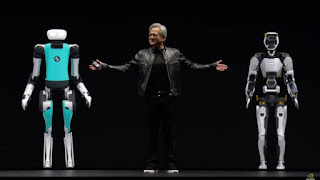- Wednesday, February 26, 2025
In 2025, Pakistan's Information Technology landscape is undergoing significant transformation, driven by advancements in Artificial Intelligence (AI) and related technologies. These developments are reshaping various sectors, from business operations to education and public services.
Artificial Intelligence Integration
AI has become a cornerstone of technological progress in Pakistan. Businesses are increasingly adopting AI-driven solutions to enhance productivity and efficiency. This includes the use of AI in automating routine tasks, analyzing large datasets for informed decision-making, and improving customer service through intelligent chatbots. The growing reliance on AI is evident across industries such as finance, healthcare, and manufacturing.
Generative AI Expansion
Generative AI, a subset of artificial intelligence that focuses on creating new content, is gaining traction. Applications range from generating human-like text and images to composing music and designing products. The market for Generative AI in Pakistan is projected to reach approximately US$162.40 million in 2025, with an anticipated annual growth rate of 41.52% leading up to 2030. This rapid expansion highlights the increasing demand for AI-driven creative solutions in the country.
Quantum Computing Emergence
Quantum computing is emerging as a transformative technology in Pakistan's IT sector. Leveraging the principles of quantum mechanics, quantum computers offer the potential to solve complex problems at unprecedented speeds. Although still in the developmental phase, quantum computing is expected to revolutionize fields such as cryptography, optimization, and material science, prompting IT professionals to prepare for its broader implementation.
5G Network Deployment
The rollout of 5G networks is set to revolutionize connectivity in Pakistan. With significantly higher data transfer speeds and reduced latency, 5G technology will enhance the performance of internet-connected devices. This advancement is expected to accelerate the adoption of Internet of Things (IoT) devices, smart city initiatives, and advanced communication services, thereby fostering innovation across various sectors.
Educational Initiatives in AI
Recognizing the importance of AI education, initiatives are underway to equip the workforce with relevant skills. UNESCO has launched a MasterClass series in Pakistan, focusing on harnessing AI for sustainable development. These educational programs aim to bridge the knowledge gap and prepare professionals to effectively utilize AI technologies in their respective fields.
Challenges and Regulatory Developments
Despite these advancements, Pakistan faces challenges in its IT sector. Recent legislative measures have introduced extensive controls over social media, raising concerns about freedom of expression and the potential impact on digital innovation. Additionally, businesses have reported significant slowdowns in internet speeds, attributed to government testing of a new nationwide internet firewall. These issues underscore the need for a balanced approach that fosters technological growth while addressing security and regulatory considerations.
In summary, Pakistan's IT sector in 2025 is marked by rapid technological advancements, particularly in AI and related fields. While opportunities abound, addressing regulatory challenges and ensuring robust infrastructure will be crucial for sustaining growth and innovation in the coming years.
- Sunday, February 16, 2025
- Saturday, February 01, 2025
Why Do Old Songs Always Feel Better Than New Ones?
I’ve often wondered why the songs I’ve already heard before always feel better than the new ones. It’s not just me; I’ve seen this with almost everyone around me. No matter how many new songs come out, we always go back to the ones we’ve already listened to.
There’s something about old songs that just hits differently. Maybe it's the memories attached to them or the fact that we’ve played them so many times that they feel like home. I can listen to Kishore Kumar’s "Mere Sapno Ki Rani" or Sonu Nigam’s "Ab Mujhe Raat Din" anytime, and they will still sound fresh. But when I try a new song, it takes time to connect with it.
Even with today’s artists, I find myself going back to the ones I already know. I really like Anuv Jain’s songs like "Baarishein" and "Husn," and no matter how many times I hear them, they always feel better than most new releases. The same happens with English songs. Ed Sheeran’s "Perfect," The Weeknd’s "Blinding Lights," or even Coldplay’s "Fix You" always feel more comforting than a brand-new song from the same artists.
I think it’s just how our minds work. Familiarity makes things enjoyable, and music is no different. New songs might be good, but they need time to become a part of our memories. Until then, we keep going back to our old favorites.
- Tuesday, January 28, 2025





